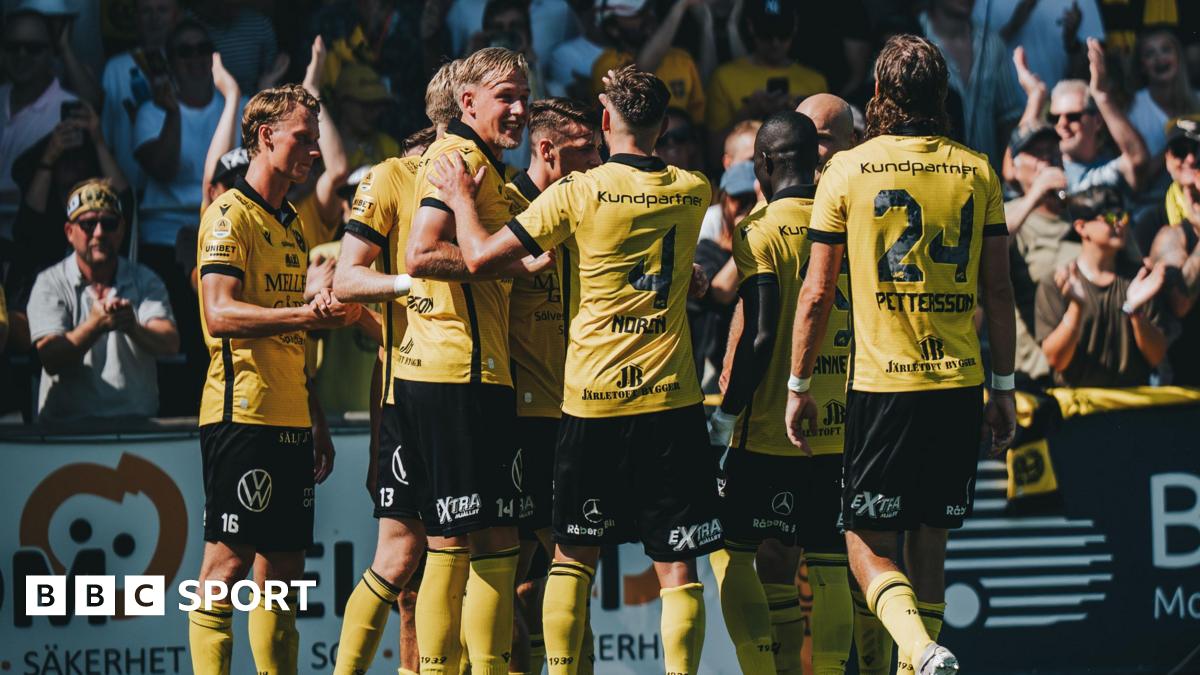In a captivating twist to European football, Sweden’s Allsvenskan season is currently unfolding a remarkable narrative, far removed from the usual dominance of its established giants. Amidst a league populated by Champions League regulars and historic powerhouses like Malmo and AIK, a small club from a town with fewer than a thousand inhabitants has defied all expectations, sitting four points clear at the top of the table.
Mjällby AIF, a club that teetered on the brink of bankruptcy just nine years ago, has emerged as the unexpected frontrunner, poised for an unprecedented European campaign. Established in 1939 through the merger of two local teams, Mjällby has spent the vast majority of its 86-year history outside Sweden’s top flight, making their current ascent even more astonishing.
Their home, the modest 6,500-capacity Strandvallen in the quaint coastal town of Hallevik, becomes a vibrant hub on match days, attracting average attendances that far outnumber the local population. This intimate setting, a stark contrast to the grand arenas of Stockholm and Malmo, encapsulates the unique charm of Mjällby’s journey, as they relentlessly pursue lost time and past glories.
Despite operating with one of the division’s smallest turnovers and budgets, Mjällby has showcased exceptional prowess, notably securing victories both home and away against formidable title rivals Hammarby. Their on-field statistics further underscore their remarkable transformation: with 35 goals in 18 games, they lead the division in scoring, and their average possession has steadily climbed to a respectable 53.8%.
This strategic evolution is largely attributed to a recently implemented, high-energy, high-pressing attacking system. Under the guidance of a new coach who joined in January 2024, despite no prior senior-level experience, the team has embraced a philosophy of playing out from the back and moving as a cohesive unit. This tactical shift has clearly unleashed the potential of key players, including their 23-year-old top goal contributor, thriving within the innovative framework.
Mjällby’s success, however, brings the perennial challenge of retaining talent. While young stars like Abdoulie Manneh and Axel Noren are drawing attention from larger clubs, the team skillfully balances ambition with commitment. Experienced players such as captain Jesper Gustavsson and striker Jacob Bergstrom provide invaluable stability, fostering an environment where player development is prioritized, even if it means eventually facilitating dream moves for their rising stars.
Beyond the pitch, Mjällby’s resurgence is built on robust financial management, with annual turnover skyrocketing from a deficit to £2.3 million since 2016, alongside a vast increase in equity. This financial stability complements a thriving community spirit, exemplified by their supporters’ association, Sillastrybarna, which has grown significantly and actively champions a positive, anti-racist, and anti-sexist culture within the stands, alongside increasingly elaborate tifo displays.
Indeed, Mjällby embodies a spirit “bigger than football,” a sentiment echoed by their chief executive who describes the club as a “big family.” Their improbable rise, from near obscurity to leading Sweden’s elite, is a testament to resilience, strategic innovation, and a profound connection to their community, proving that even where the world seemingly ends and the sea begins, extraordinary footballing fairytales can unfold.






Leave a Reply